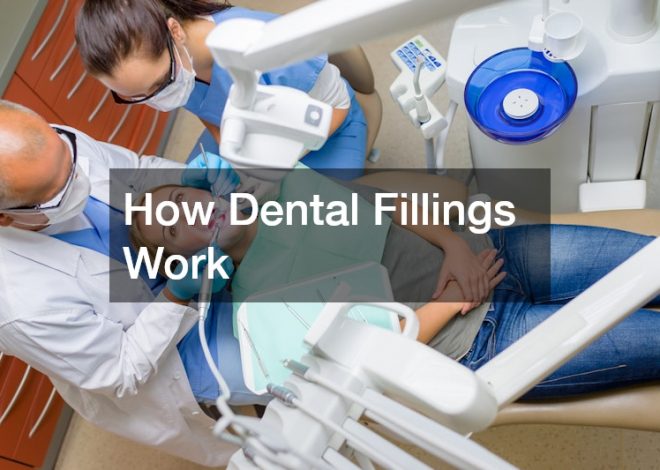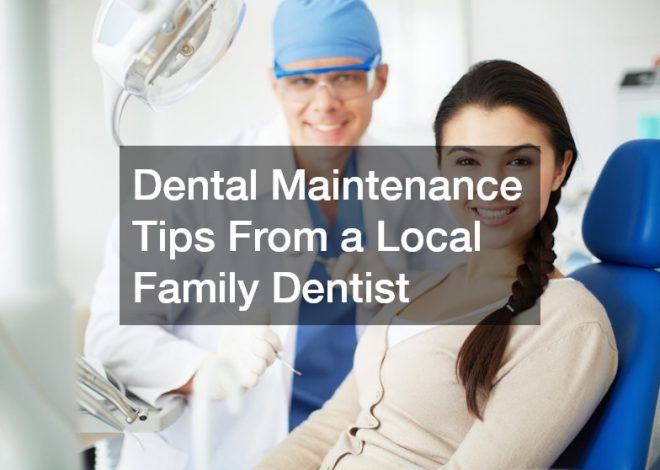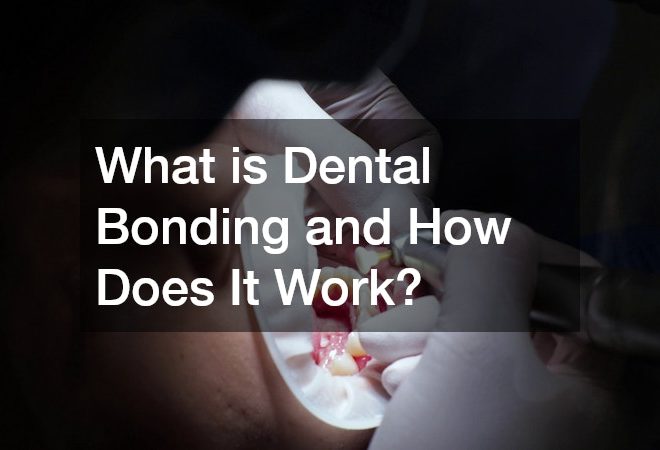
Scared to Go to the Dentist? It Could Be Harming Your Health

Are you among the many people who are scared to go to the dentist? Well, you might be inadvertently compromising your overall health. Disregarding regular dental check-ups and treatments can have far-reaching consequences beyond oral health. This article delves into the connection between dental anxiety and its potential impact on your well-being.
Your Oral Health Impacts Everything

Did you know? Oral health plays a significant role in your overall well-being, extending far beyond the condition of your teeth. One aspect that can affect oral health is anxiety. Many individuals are scared to go to the dentist, which leads them to avoid dental visits and neglect proper oral care. According to Cleveland Clinic, about 36% of people in the U.S. have a fear of dental treatment, with 12% having an extreme fear. Unfortunately, this anxiety can have profound consequences for their general health.
When dental issues such as tooth decay or gum disease go untreated due to dental phobia, they can worsen and impact other areas of the body. For instance, untreated oral infections can spread, causing systemic infections that have detrimental effects on health. Moreover, the bacteria present in oral infections can enter the bloodstream, contributing to cardiovascular problems like heart disease or stroke.
Additionally, the connection between oral health and overall health extends to the role of doctors. Dentists play a vital role in detecting early signs of certain medical conditions. During routine dental check-ups, dentists can identify indicators of diabetes, vitamin deficiencies, and even some types of cancer. By forsaking dental visits, you miss out on these valuable opportunities for early detection and intervention.
Taking care of your oral health goes beyond the aesthetics of a bright smile. It’s important for maintaining your overall well-being. Addressing dental phobia allows for regular dental care and the prevention of oral health issues from progressing and potentially impacting systemic health. Investing in proper oral hygiene and seeking regular dental check-ups not only supports healthy teeth but also contributes to a healthier life overall.
You May Develop Adjacent Health Defects

If you’re scared to go to the dentist, you may be unaware of the potential health defects that can arise as a result. Dental phobia can lead to a reluctance to seek necessary dental care, which can have far-reaching consequences on your overall health. One area that can be affected is cardiovascular health. As cardiovascular doctors claim, poor oral health, such as gum disease, can contribute to an increased risk of cardiovascular problems like heart disease and stroke. By neglecting dental visits due to fear, you may inadvertently put your cardiovascular health at risk.
In addition to cardiovascular issues, avoiding the dentist due to fear can also impact other aspects of your well-being. Dental visits often involve more than just examining your teeth. Dentists, as healthcare professionals, have the opportunity to detect signs of other health conditions during routine check-ups. For example, they can identify symptoms of diabetes, which may manifest in the oral cavity. Regular dental visits provide an opportunity for early detection and intervention in such cases.
Moreover, it’s important to recognize that the impact of dental phobia extends beyond dental-related health defects. Forsaking dental care can lead to oral health issues that require more extensive treatments or interventions. This can result in higher costs, prolonged discomfort, and an increased risk of complications. Besides, the fear associated with dental visits can also extend to seeking other healthcare services, such as optician services. This can further hinder your overall health by preventing you from addressing other medical needs and receiving necessary treatments.
Arthritis Is One of the Most Common Effects of Poor Oral Health

Arthritis often arises as a common consequence of poor oral health. Disregarding proper dental care, particularly in relation to gum disease, has been associated with an increased risk of developing various forms of arthritis. Gum disease triggers inflammation and bacterial infections that can activate an immune response affecting the joints. Consequently, individuals may experience joint pain, stiffness, and swelling due to untreated oral health issues.
Understand that arthritis treatment requires comprehensive care and management. While medications and therapies play a huge role, overlooking the connection between oral health and arthritis may hinder overall progress. As per the National Institutes of Health, managing oral health and treating gum disease can help alleviate arthritis symptoms. Prioritizing regular dental check-ups, maintaining optimal oral hygiene, and seeking appropriate gum disease treatment can potentially enhance arthritis management and alleviate joint discomfort.
Moreover, poor oral health can have implications beyond arthritis. Overlooked oral hygiene can contribute to the development of varicose veins. Oral bacterial infections can enter the bloodstream, damaging blood vessels and resulting in weakened vein walls and the formation of varicose veins. Practicing proper oral care, including regular brushing, flossing, and professional cleanings, can help prevent oral infections and reduce the risk of varicose veins.
Additionally, the consequences of poor oral health extend to back pain management. Chronic gum disease and oral infections can lead to systemic inflammation, potentially aggravating back pain. Don’t be scared to go to the dentist, maintain good oral hygiene and address oral health issues promptly to alleviate inflammation and support effective back pain management. Understanding the connection between oral health and back pain is key. Prioritize regular dental visits for proper guidance.
You’ll Develop Sensitivities Over Time

If you’re scared to go to the dentist, one of the consequences you may face over time is the development of sensitivities. Poor oral hygiene leads to issues like gum recession and enamel erosion, leaving your teeth vulnerable to sensitivity. Without proper care, the protective layers of your teeth can wear down, exposing the underlying nerves and causing discomfort or pain when exposed to hot, cold, or acidic foods and beverages. These sensitivities can significantly impact your eating habits and overall quality of life.
To mitigate teeth sensitivities, it’s important to address the underlying oral health issues. Regular dental visits play a crucial role in identifying and treating conditions like gum disease or enamel erosion. In addition, using toothpaste specifically designed for sensitive teeth, along with practicing proper oral hygiene techniques, can help alleviate sensitivities and protect your teeth from further damage.
Furthermore, the impact of poor oral health extends beyond dental sensitivities. Ignored oral care can also affect your overall well-being. Experts suggest that individuals with poor oral health are more likely to experience social anxiety or discomfort in social situations due to concerns about their breath or the appearance of their teeth. Seeking therapy for social anxiety can be beneficial in addressing these concerns and improving confidence and overall mental well-being.
Poor oral health can also have implications for your general health. For example, using unfiltered water that contains harmful bacteria or chemicals can negatively affect your oral health. Investing in water filters can help eliminate these contaminants and reduce the risk of oral health issues. Still scared to go to the dentist? You shouldn’t. Addressing oral health issues, such as gum recession and enamel erosion, through regular dental visits and proper oral hygiene practices, is important for alleviating protecting your teeth.
Complications During Pregnancy

Overlooking your oral health when you’re scared to go to the dentist can have significant implications during pregnancy. Pregnancy hormones increase the risk of oral health problems like gum disease and tooth decay. If left untreated, these conditions can lead to complications that affect both the mother and the baby.
Poor oral health during pregnancy links to an increased risk of preterm birth, low birth weight, and gestational diabetes. The bacteria associated with gum disease can enter the bloodstream, triggering an inflammatory response and potentially affecting the developing fetus. Gum disease has also been associated with preeclampsia, a dangerous condition characterized by high blood pressure during pregnancy.
Overcoming your fear of the dentist and scheduling regular check-ups are essential during pregnancy. Dentists can identify and treat oral health issues before they worsen. Daily brushing and flossing, along with a balanced diet, support oral health and overall well-being during this critical time.
You’ll Suffer Respiratory Infections
Poor oral health increases susceptibility to respiratory infections. When you’re scared to visit the dentist and avoid regular dental check-ups and cleanings, untreated oral health issues like gum disease and decay can create an environment conducive to the growth of harmful bacteria. These bacteria can eventually make their way to your respiratory system, potentially leading to respiratory infections such as pneumonia and bronchitis.
Maintaining proper oral hygiene and seeking routine dental care prevents the accumulation of bacteria and maintains a healthy oral environment. Consistent brushing, flossing, and professional cleanings help remove plaque and tartar, reducing the presence of harmful microorganisms in your mouth. Being scared to go to the dentist increases the risk of bacterial growth, which can subsequently reach your respiratory system and contribute to respiratory infections.
Moreover, poor oral health can weaken your immune system, leaving you more susceptible to respiratory infections. The oral cavity serves as a gateway for bacteria and viruses to enter your body. When oral health is overlooked, the immune system’s ability to combat these pathogens becomes compromised. Chronic inflammation resulting from poor oral health further impairs the immune system’s effectiveness in responding to respiratory pathogens.
Poor Oral Health Weakens Your Immune System
Oral problems can have a huge impact on your immune system, weakening its ability to defend against harmful bacteria and viruses. When you’re scared to go to the dentist and avoid regular dental check-ups and cleanings, oral health issues such as gum disease and tooth decay can go untreated. These conditions create an environment in your mouth where bacteria can thrive and multiply. Over time, these bacteria can enter your bloodstream and trigger an immune response, leading to chronic inflammation throughout your body.
Neglected oral health not only allows harmful bacteria to flourish but also impairs your immune system’s ability to combat infections effectively. The immune system defends your body against pathogens, including those that enter through the oral cavity. When oral health is compromised, the immune system becomes overwhelmed by the constant presence of bacteria and inflammation, leading to a weakened defense system.
Furthermore, chronic inflammation resulting from poor oral health disrupts the balance of your immune system. The continuous activation of immune responses due to untreated oral health issues places a strain on your body, leaving it less able to respond to other threats effectively. This weakened immune system can increase your susceptibility to various illnesses and infections, making it more challenging for your body to fight off diseases.
Diabetes Complications
Ignoring your oral health can have serious consequences, especially if you have diabetes. Diabetes leads to various complications, and poor oral health can exacerbate these risks. When you’re scared to go to the dentist and avoid regular dental check-ups and cleanings, oral health issues such as gum disease can worsen. According to America Diabetes Association (ADA), individuals with diabetes are more prone to gum disease, and untreated gum disease can make it harder to control blood sugar levels, leading to complications in diabetes management.
The correlation between oral care and diabetes is clear. High blood sugar levels in diabetes create an ideal environment for bacteria to thrive in your mouth. These bacteria cause infections, inflammation, and gum disease. Moreover, uncontrolled diabetes weakens the immune system, impairing its ability to fight off infections, including those in the oral cavity. It’s, therefore, crucial for individuals with diabetes to prioritize their oral health and overcome their fear of going to the dentist to receive appropriate care.
That said, oral defects have been attributed to complications associated with diabetes. Gum disease, in particular, has been linked to an increased risk of cardiovascular problems, such as heart disease and stroke, which are already more prevalent in individuals with diabetes. By overlooking dental services, you are potentially heightening the risks of these complications and further compromising your overall health.
Your oral health impacts everything. It’s not just about having a bright smile, but also about safeguarding your overall health and well-being. Don’t be scared to go to the dentist, prioritize your dental health, and enjoy the benefits of a healthier you. Take the first step towards better oral health by scheduling a dental appointment and starting a journey towards a healthier, happier you.


